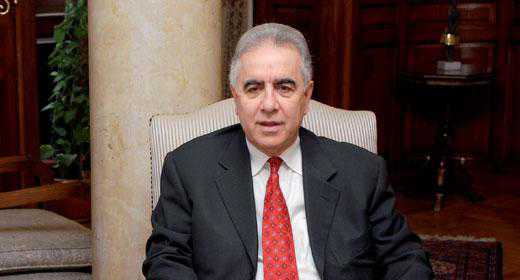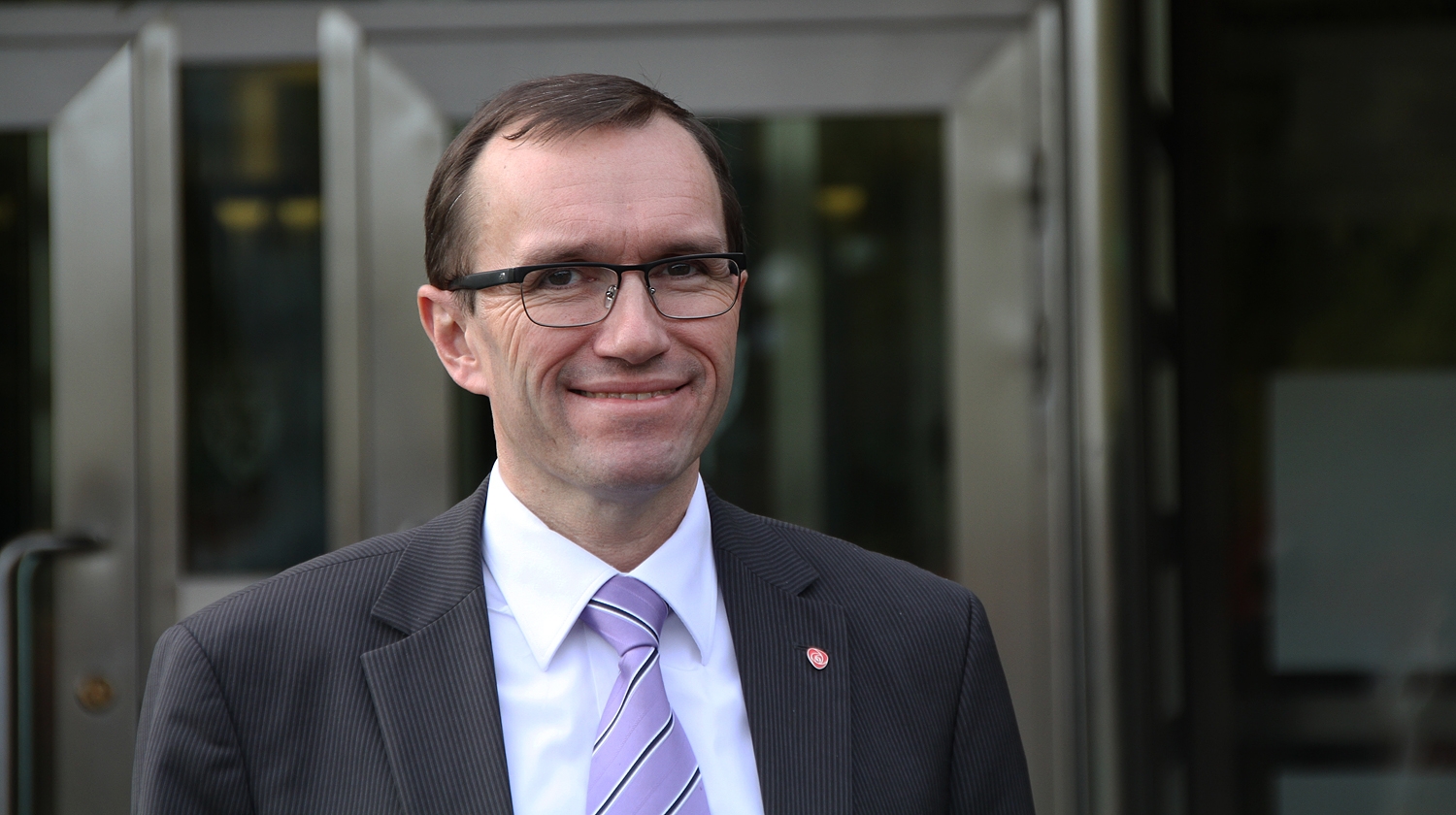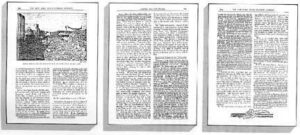Fatih Akin. Demotix/ion ka. All rights reserved.Alex Sakalis: Let’s get the obvious question out of the way: why did you, as a filmmaker of Turkish origin, choose to make a film about the Armenian genocide?
Fatih Akin: Well as you said, I’m a child of Turkish parents. The Armenian genocide is something very deep and immovable in our culture and history. It’s a blind spot where not so many people know about it, and not so many people talk about it. One of my main reasons for doing the film is to produce something where people come out and inform themselves, discuss, and start to create a room where they can reflect on their own history and trauma.
AS: April 24 is of course the centenary of the Armenian genocide, with commemorations being held across the world. It seems like it has taken a long time to make a film about the Armenian genocide. The only other one I can think of is the Atom Egoyan film, Ararat.
FA: There’s a film by the Taviani brothers too, The Lark Farm. There’s also a film called Mayrig with Omar Sharif, and then a film called Ravished Armenia. It’s a silent movie from 1919, with, I believe, just one reel in existence. And a film which people acclaim as having the background of the genocide is Elia Kazan’s America, America. But my film is the first fiction film by a Turkish origin director that deals with that.
AS: How do you think it will be received in Turkey?
FA: I think the society is ready for such a film. I really do.
AS: I find the “I Apologise” movement in Turkey to be very interesting, but then there’s Article 301 of the Turkish penal code, which has a kind of chilling effect on free speech in the country. What do you think about Article 301?
FA: In the last eight years – since Hrant Dink was shot – there were fewer people prosecuted because of that article. Before he died, there had been many more prosecutions. But his killing was in a strange way a turning point. The government realised that this sort of politics hadn’t succeeded, because 100,000 people went out onto the street for his funeral.
And these weren’t Armenians. These were mainstream Turkish people saying, ‘We are all Armenian’ and ‘We are all Hrant Dink’. So it was visible that many Turkish people were not supporting the politics with the Armenians. That was a turning point and since then there have been civil movements, such as the ‘I Apologise’ campaign, programmes in universities, and books which were published about the genocide of Armenians in Turkey with no Article 301 prosecutions. So that’s what I mean. There’s change. I’m part of that change. Not the leader of the change – not at all. I’m part of that movement. I’m a filmmaker. Film can reach a lot of people.
AS: But you could say, yes, there were 100,000 people who came out for Hrant Dink’s funeral, but these were mainly the liberal, cosmopolitan middle class. Maybe people in more rural parts of Turkey don’t go along with this change you describe. Not to mention the notoriously conservative state, what with Erdogan’s recent attempts to organise a media campaign against the genocide commemorations…
FA: There is a movement acknowledging and reflecting upon the genocide. First of all, there are many people in every city and in every village who acknowledge that these things happened. They don’t call it genocide, but they are aware that something had happened and that Armenian churches had become mosques, or in some cases become barnhouses. They know that. Many people know about it, not everyone, but many people. This is the first thing to appreciate.
The second is this: let’s look at certain movements in the past – certain changes of values; for example, the attitude in Germany against nuclear power stations. In the early 80s, if you were against nuclear power stations in Germany, you were a crazy left-wing terrorist. This is the 1980s we’re talking about. Not so long ago. Today even Angela Merkel, from the conservative wing of politics, says we should change power in Germany from atomic to alternative. It took 35 years for a marginalised political opinion to become mainstream.
A still from The Cut. Soda Pictures.AS: But do you think Turkey could develop like Germany? They are very different countries.
FA: They are different countries, but the truth is the truth. It doesn’t have a national passport.
AS: What’s the feeling among Turks in Germany with regards to the Armenian genocide?
FA: The debate in Turkey is more developed than in Germany among Turks.
AS: Do you think the Turkish community in Germany is less progressive in their views than those in Turkey?
FA: Sometimes I think they are not really up to date with what’s happening in Turkey.
AS: Does being part of a diaspora make them more defensive about their history and culture? Maybe they feel a siege mentality being a minority in a country like Germany.
FA: There’s too little identification with Germany itself – although this is also changing. It’s not constructive for an individual to see yourself not part of the country you were born and grew up in, and instead believe your country is somewhere else. This is creating illusions. And illusions are not something you can really hold on to. I think a lot of this is due to the fact that a lot of Turks still don’t feel as if they are welcome in Germany. They feel like second class citizens.
AS: Turkish first and German second?
FA: Yeah. Even a lot of second and third generation Turks feel this way. It’s getting better though. They are identifying themselves more and more with Germany. But still it’s too little. Many are still bound to this immovable idea of Turkey and Turkishness, without realising that Turkey itself is moving.
AS: Moving forwards or backwards?
FA: It’s moving in every direction. When Erdogan last year, one day before the anniversary, had this speech saying to the Armenians that the pain of your grandchildren is our pain too, that we are sorry for your pain – well, that was a historical step. No matter what he may have said before, what he said there was a forward step and he cannot go back from this.
For instance, I felt secure with my film and I felt, in a strange way, protected when he did that. No matter what political motivation he may have had, the point is that he said something that nobody had ever said before. This was a historical thing for a Turkish leader to do. The room for the discussion became bigger.
You know, in 2007, there was a vote in the chamber of the lawyers of the constitution, on whether they wanted to stop Erdogan’s party, the AKP. Some felt it had become too religious. So Erdogan and his party – and by saying this I’m not expressing an opinion, just explaining – they were a target of the Kemalist movement. Article 301 is something that the AKP can use or not, but 301 is older the AKP, than Erdogan’s Turkey. It’s something that comes from the constitution, from the military, from Kemalism. Those people used 301 to attack Orhan Pamuk, Hrant Dink and many others. Those powers were the same powers that had an interest in getting rid of AKP.
So you have the AKP here, the intellectuals there, and the Kemalists way over there. And they are fighting against the intellectuals because they want to acknowledge the genocide. They are fighting against the Kurds. They are fighting against the minorities. They are fighting against the religious. Erdogan comes from the religious party. So through Erdogan’s internal war with the Kemalists – those who use 301 as a sharp knife – they are getting weaker. By saying that I don’t mean that to defend Erdogan’s beliefs or actions. That’s just me explaining how complicated it is in Turkey.
AS: Have you shown your film to audiences in Turkey?
FA: Yes.
AS: What were the reactions?
FA: The first people I showed it to were artists in Turkey – painters, filmmakers, writers. That was the first group who saw it and they liked it.
—-
The Cut will be released by Soda Pictures in the summer. There will be commemorative screenings of The Cut on 24 April at the Picturehouse Crouch End, the Gulbenkian Cinema Canterbury and the QFT Belfast, before going on general release later this summer. Tickets for Crouch End are now on sale here.
If you enjoyed this article then please consider liking Can Europe Make it? on Facebook and following us on Twitter @oD_Europe











